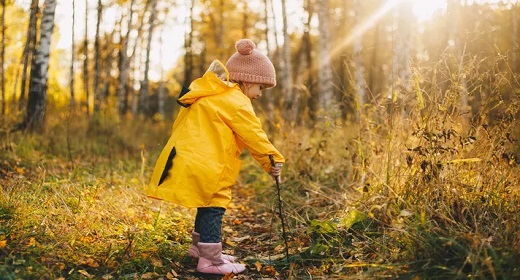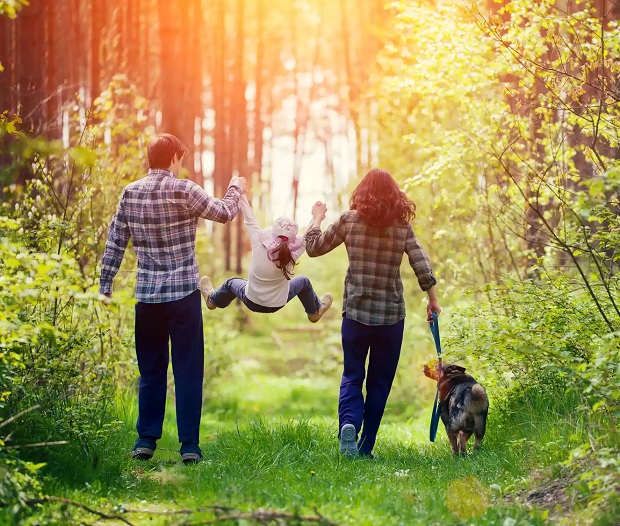by Mary Jo DiLonardo: There’s plenty of research demonstrating the link between being in nature and being happy, but most of the research has focused on adults…
In a new study published in the journal Frontiers in Psychology, researchers wanted to see if kids reap the same feel-good benefits from being in the great outdoors.
For the study, researchers worked with 296 children between the ages of 9 and 12 in a northwestern Mexican city. To measure how connected they were to nature, the kids were asked how much they enjoying activities like seeing wildflowers and wild animals, hearing sounds of nature and touching animals and plants.
The researchers also measured the children’s attitudes toward sustainable behaviors by making statements that addressed concepts of altruism, equity, frugality and pro-ecological behavior to determine how much they agreed with them. The statements involved activities like giving away used clothing, helping those who are hurt, saving water and recycling.
The statements that had the highest links with connectedness in nature were “picking up trash from the ground can help the environment,” “taking care of animals is important,” and “human beings are part of the natural world.”
The researchers found that the kids who saw themselves connected to nature were more likely to act sustainably. Also, the more concerned they were about the environment and nature, the more likely they were to say they were happy.
Why connectedness to nature is important
Lead author Dr. Laura Berrera-Hernández of the Sonora Institute of Technology (ITSON) describes “connectedness to nature” as not just appreciating nature’s beauty, but also “being aware of the interrelation and dependence between ourselves and nature, appreciating all of the nuances of nature, and feeling a part of it.”
The researchers acknowledge that the study was limited in that it only tested children from the same city and might not be representative of other groups. However, the researchers say that findings “provide insight into the power of positive psychology of sustainability in children.”
Explaining the motivation behind the study, they write, “Given the environmental problems humanity is currently facing, and considering that the future of the planet lies in the hands of children and their actions, research on the determinants of sustainable behaviors in children has become more relevant; nonetheless, studies on this topic focusing on children are scarce.”
The researchers note that with environmental issues such as global warming, deforestation and species extinction, more studies are focusing on the relationships between humans and nature to find solutions to these threats. They cite research about “nature-deficit disorder” to describe a lack of connectedness that children often feel about the natural world.
Because young people are the “future custodians of the planet,” researchers are working to learn how to promote sustainable behaviors and encourage environmental concern in children.
Berrera-Hernández said in a statement: “Parents and teachers should promote children to have more significant contact or exposure to nature, because our results indicate that exposure to nature is related to the connection with it, and in turn, with sustainable behaviors and happiness.”
Nature for adults
So much research has focused on how being in nature can have benefits for adult well-being.
Studies have shown that walking among trees makes us relaxed, nicer people. Even just smelling the trees helps ease anxiety. The more green space in a neighborhood, the happier people say they are. One study even found that walking in a park can give you the same feel-good sensations as Christmas.
In one study, researchers even tried to identify the most effective “dose” of nature within the context of normal daily life. They found that spending 20-30 minutes outdoors soaking in nature was the prescription for health and happiness.
And when adults are outside and appreciate nature, kids learn by example.
“Children need role models … who can gently guide them to nature with excitement, optimism and an attitude of a lifelong learner,” Miyuki Maruping, a gardening teacher at the Waldorf School of Atlanta, tells CNN, commenting on the newest study.
“We don’t have to be experts in environmental science or nature studies. What’s more important is that we spend time together with children by exploring curiosity in a fun and safe environment.”


















































